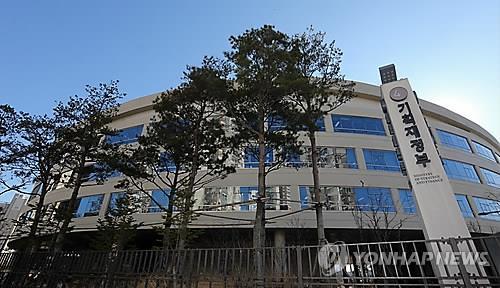Korea to consider direct, indirect bank recapitalization for restructuring
By Park Hyung-kiPublished : May 19, 2016 - 15:59
South Korea’s Ministry of Finance said Thursday that it has agreed with the central bank to consider deploying a mix of fiscal and monetary measures that will enable them to flexibly recapitalize policy banks through direct and indirect financing.
In their second task force meeting presided over by Vice Finance Minister Choi Sang-mok in Seoul on Thursday, officials from the Finance Ministry, the Bank of Korea and the Financial Services Commission saw the need to inject capital both directly and indirectly via a fund into the banks for rapid corporate restructuring.
In their second task force meeting presided over by Vice Finance Minister Choi Sang-mok in Seoul on Thursday, officials from the Finance Ministry, the Bank of Korea and the Financial Services Commission saw the need to inject capital both directly and indirectly via a fund into the banks for rapid corporate restructuring.

“We have comprehensively looked into ways to directly finance the banks and use a fund to recapitalize them,” the Finance Ministry said in a joint statement with the BOK and FSC.
“The Finance Ministry has discussed with the central bank on ways to use various fiscal and monetary options at their disposal, and come up with a suitable measure (against restructuring) through a policy mix.”
They remain committed to devising detailed plans on bank recapitalization by the end of next month by holding a series of dialogue among the fiscal, monetary and regulatory authorities, they added in a statement.
Also, the agencies reiterated that shipbuilding and shipping companies that are about to go through restructuring with taxpayer money must be held accountable and share financial responsibility with the state-run Korea Development Bank and the Export-Import Bank of Korea.
The policymakers also said that the banks must come up with their own self-financing plans instead of only relying on public funds for capital injections as a means to boost their capital buffers.
“We came to an understanding that the policy banks needed to be recapitalized as part of a contingency plan to preemptively counter a possible crisis,” the Finance Ministry said.
The decision to consider financing the banks through a fund comes as the central bank had indicated that it would be inappropriate to directly finance them by extending its money-printing authority.
It suggested that it would be much better to help the banks by launching a bank recapitalization fund and providing capital to banks as loans using bank bonds as collateral, as it had done for local commercial lenders in the aftermath of the global financial crisis in 2008.
This would ensure the central bank minimizes losses and gains public consensus, it noted.
The BOK remains unchanged on this view, saying that even if the authorities decide to use the bank recapitalization fund, they must also plan how to retrieve the capital that went into the banks for corporate restructuring.
The Finance Ministry and the central bank have been at odds over the methods of bank recapitalization, with the BOK stressing that increasing banks’ capital bases for corporate restructuring should be managed through fiscal measures. The Finance Ministry, on the other hand, wanted to handle corporate restructuring with capital provided by the government via bond issues or cash injections and the central bank’s quantitative easing program.
By Park Hyong-ki (hkp@heraldcorp.com)







![[Hello India] Hyundai Motor vows to boost 'clean mobility' in India](http://res.heraldm.com/phpwas/restmb_idxmake.php?idx=644&simg=/content/image/2024/04/25/20240425050672_0.jpg&u=)









